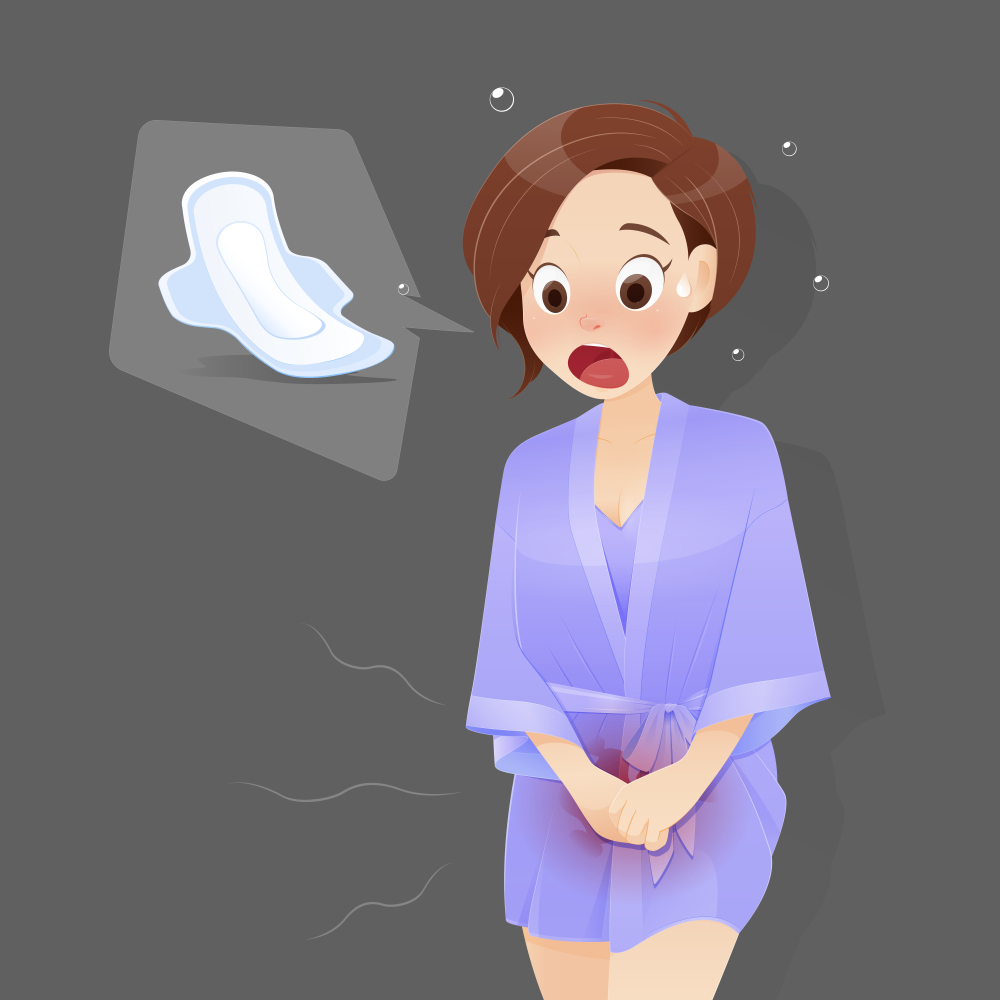Abnormal Vaginal Bleeding: Causes, Treatment, and Prevention

Vaginal bleeding, also known as menstruation, is quite common among women. It usually occurs within three to five weeks and may last for 48 hours to seven days. However, due to some health issues or hormonal imbalances, this might happen, even when you are not undergoing your menstrual cycle. This condition is known as abnormal vaginal bleeding.
In most cases, the issue of vaginal bleeding does not cause any severe symptoms at all. However, if you are experiencing excruciating pain and heavy bleeding, it will be better to check up on your infertility specialist in Noida.
Here, in this write-up, we will talk about the prime causes of irregular bleeding and learn about the prevention methods. So, if you are worried about this condition and wish to find out more, then be sure to keep reading.
What is Abnormal Vaginal Bleeding?
As mentioned before, the onset of abnormal vaginal bleeding usually begins in between one’s periodical cycle. Therefore, it is also known as intermenstrual bleeding, metrorrhagia, and spotting. However, such heavy bleeding can occur during your menstrual period as well.
If you are encountering menstrual bleeding during pregnancy and menopause, it can be tagged as abnormal too. Anyway, in most cases, this issue can be treated with proper care and treatment. So, there's no need to worry about it.
Causes of Abnormal Vaginal Bleeding
Bleeding excessively, especially between periods, is not a natural part of any menstrual cycle. Thus, if you are currently suffering from it, it might be caused by either of the following factors.
-
Hormonal Discrepancy
Progesterone and estrogen are two hormones, that are responsible for regulating your menstrual cycle. Thus, if any form of unbalancing occurs between them, then you might experience abnormal vaginal bleeding all of a sudden. Here are a few factors that might promote the imbalance:- Stopping or starting birth control pills abruptly
- Dysfunction of the ovaries
- Health issues regarding the thyroid gland
- Implementation of an intrauterine device
-
Infection
The sudden onset of irregular bleeding can also be caused by the emergence of an infection of an individual's reproductive organs. If left untreated, it may cause inflammation to the area surrounding one's vagina and induce severe bleeding. The causes of the infection might include:- Vaginal douching
- Sexually transmitted disease or infection
- Pelvic inflammatory disease
- Frequent intercourse
-
Uterine Fibroids
Uterine fibroids are, in essence, a type of non-cancerous growth, which occurs in the uterus of a woman. These are very common among younger adult women but can also affect and cause abnormal vaginal bleeding in older women. -
Complications Regarding Pregnancy
Spotting is one of the most prevalent issues, which occurs due to the complications of pregnancy. However, if someone has recently gone through an unfortunate miscarriage, they may experience irregular menstrual bleeding.
Furthermore, the occurrence of an ectopic pregnancy can cause the same too. Thus, if you are going through the pregnancy period and experiencing excessive vaginal bleeding, then be sure to talk to your doctor promptly. -
Cancer
Some doctors also consider a few specific forms of cancer to be a potential abnormal vaginal bleeding cause. The list of the same might include:- Ovarian cancer
- Cervical cancer
- Cancer of the uterus
- Diabetes
- Extreme stress
- Sudden weight loss or gain
- Thyroid disorders
Treatment for Abnormal Vaginal Bleeding
The treatment procedure for the bleeding will depend on the factor that is causing it. Once diagnosed, your best obstetrician in Noida might choose any of the following options to treat you promptly:
- Various medications can reduce the inflammation and infection of the vaginal surroundings. It, in turn, can reduce the bleeding and severity of pain as well.
- In the case of uterine fibroids, the doctor will proceed with a myomectomy to surgically remove the fibroids.
- A hysterectomy will be initiated to remove uterine cancer/tumour from your body.
- In some cases, the linings of your uterus might get damaged and cause menstrual bleeding too. In this case, the doctor will perform an endometrial ablation to promptly cure the issue and stop the severity of the condition.
Prevention of Abnormal Vaginal Bleeding
Do you want to know how to stop vaginal bleeding before it reaches the point of extreme severity? Then, be sure to go through this section as meticulously as possible.
- Maintain a Healthy Weight: Being obese or overweight can cause an immense amount of pressure on your uterus and damage its linings. Thus, if you do not maintain a healthy weight, this might lead to abnormal bleeding and various other life-threatening conditions.
- Try to be Relaxed: Stress does not directly cause abnormal bleeding at all. However, it can trigger the issues, which might be involved in this issue. So, try to stay away from distressing thoughts and relax as much as possible. However, if you cannot do so on your own, joining a stress management class can be an excellent idea.
- Opt for Hormone Replacement Therapy: In some cases, hormonal imbalance can occur if you delay hormone replacement therapy. So, be sure to go to the session as your doctor has directed and follow a proper routine. This way, it will be easier for you to remember the timing of your course.
- Be Careful While Taking Birth Control Pills: As mentioned before, if you take birth control pills too frequently, it can cause excessive vaginal bleeding. Thus, make sure to maintain a proper timeline of the same and finish your medication course within due time.
Conclusion
In truth, the issue of abnormal vaginal bleeding does not pose too much of a threat. In some cases, it goes away on its own within a few days. However, if the condition has been persistent for more than three days, then it will be better for you to visit your doctor promptly.